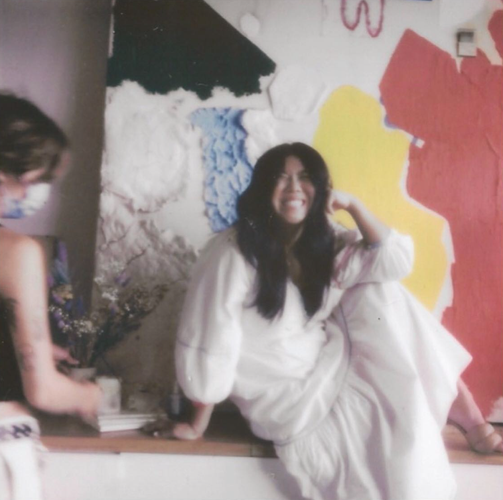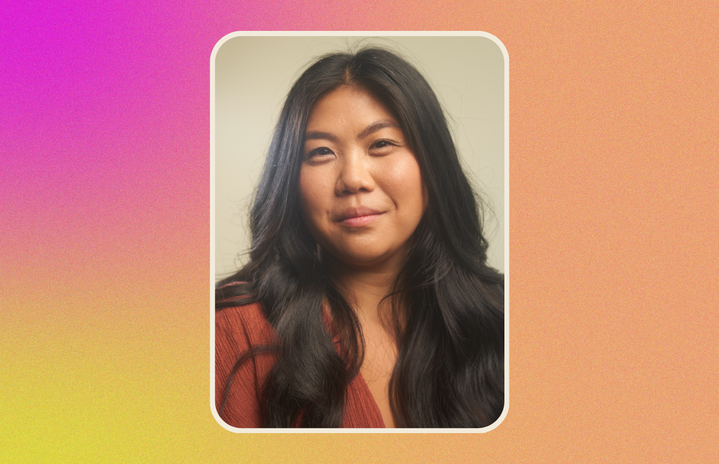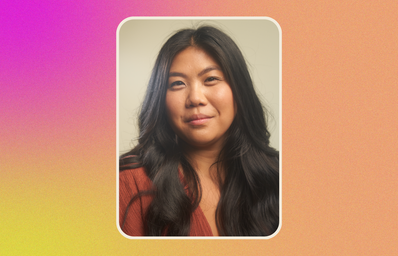Stephanie Lee — the founder of mental health-focused beauty brand selfmade — is someone you instantly feel comfortable spilling your life story to. I found that out when she asked how my day was, to which I replied with a shrug. “Eh, you know.” Truth was, my day was going terribly; I spilled coffee all over myself, I barely slept, and I just received my credit card statement. It was not my day.
Lee noticed instantly. Instead of shrugging off my pessimism alongside me, she asked, “Do you want to talk about it?” Before I knew it, I was almost in tears from a pep-talk on the importance of self-worth delivered by a woman I just met over Zoom.
Stephanie Lee is not a therapist, but she is someone who values mental health. Lee was born to immigrant parents and worked as a MAC makeup artist in college before transitioning to a career in government. From there, Lee re-entered the beauty world, working at Estée Lauder/MAC in New York City. In 2019, Lee founded the beauty and skin care brand selfmade. But this brand is far from run-of-the-mill: it’s a ritual-based psychodermatology brand, which is a fancy way of saying it connects mental health with beauty to create the ultimate self-care experience. selfmade has made a name for itself as a psychologically-backed line that truly emphasizes the meaning of self-care, beyond a face mask and bubble bath.
After a mini therapy session and a cold glass of water, I talked to Lee about her journey in making selfmade, the wellness industry, as well as her own mental health. The one thing I learned? Stephanie Lee likes to bet on herself, and she wants you to as well.

This interview has been edited for length and clarity.
How did you discover beauty and skin care as a form of self-care?
In terms of beauty being a way of self-care, it wasn’t until I went through a mental health crisis in 2015 to 2016 when I was 29. This is when I dove into a deep depression, essentially, and was going through therapy for the first time. I was super resistant because you have to be super vulnerable. And I was like, what if there’s actually something really “wrong with me,” and I go to therapy and actually it validates what’s wrong with me?
I went to therapy and devoted so much time, energy, and effort into it, sometimes three to four times a week because I was like, “Oh my gosh, I truly don’t know sh*t about myself, and why and how I got here.” Have you gone to therapy?
I have, yeah. Big therapy girl.
Absolutely. Tears coming down afterwards, because every piece of new information is so enlightening, but it’s also so painful. So, what does it look like to go home and do the aftercare, when you’re just in tears and you’ve just bared your soul? For me, it was equating those moments of deep reflection with giving myself a break, whether it was putting a mask on or going into reflection about what I just spoke about. Also, on the opposite side, I was so deeply depressed — my hair was falling out, my skin was freaking out, I had major dandruff — that even going to the dermatologist, nothing worked. I was like, “There is nothing out there to help me with the root source of this, which was the stress and the high cortisol that came from my anxiety and depression.
So, this led you to creating selfmade?
I’ve always been entrepreneurial, and always wanted to take risks. And starting a business is a personal risk. I remember having conversations with my partner where he was like, “Do you want to continue taking bets on other people, or do you want to take a bet on yourself?” And I was like, “I 110% want to take a bet on myself.” And so, that was the beginning of me pulling away from what I “should” be doing, according to society — which is climbing the ladder, making lots of money, — to, “I’m going to take a bet on myself and this is going to be scary.”
Wanting to do something that was really impactful in a different way was how I knew that I wanted to make selfmade. I met with 20 to 25 mental health therapists and practitioners to validate the idea of the brand because I was like, “If this doesn’t actually make an impact, then I’m not doing it.”
selfmade is different from other skincare brands, though. It has this ritualistic approach to beauty and self-care. Could you tell me more about ritualistic self-care?
Every single facet of this brand has been built off of just behavioral and social sciences. When it comes to ritual, that is routine plus intention. Routine is just actions. We do the same actions every single day, but if we add intention behind the actions that we do — rather than slapping a serum on and being like, “OK, bye,” or looking at our face and being like, “Oh my God, why is this zit here? I look ugly,” or listening to whatever society has taught us about our appearance — if we put intention into that time where we’re already taking care of ourselves, that is a very powerful thing, where we can spend time validating ourselves.
Every single time you touch yourself is a moment of love and care and attention that your body deserves and you deserve, and you’re actually fulfilling your own need. That is a powerful thing. selfmade is really about changing the way we take care of ourselves to be much more focused on that self-exploration and self-curiosity versus self-judgment every time we touch and see our bodies.
I’m Filipino and it’s super important for me, as someone that loves wellness, to see people who aren’t just white in the wellness space. What has it been like for you to navigate this industry as a woman of color?
Very tough, I’ll tell you, and thank you for asking me. I don’t think anyone’s asked me that, to tell you the truth. So much of wellness, when you look at Maslow’s Hierarchy of Needs, is about that top bit: aspirational about self-actualization. That comes from a lens of privilege. How can you reach self-actualization if you don’t have your physiological, safety, love, and belonging needs taken care of? And so many BIPOC folks, including myself, have jumped economic brackets within one lifetime because of immigrant parents. They’ve allowed and given me the privilege because of the hard work that they’ve put in to put shelter, warmth, a place for my head to go down when I’m sleeping. A feeling of safety — physical safety, sometimes emotional safety.
Something that I’ve been really working on is the existence of both. Things can be really terrible and things can be really great and those two things can exist.
But that in itself requires privilege. The wellness industry and most consumer industries forget about those two pieces that are foundational: physiological and safety. It’s hard to navigate because while we’ve made considerable waves in the conversation, it’s incredibly difficult to build a new table when society has said, “Oh, we have a table. We’ve saved these two seats for BIPOC.” When it’s that, it’s somebody else’s table, it’s not built for us. They’re saving two seats for us. That means what is happening is every BIPOC person is “fighting” for those two seats.
That’s exactly the issue: Why are we fighting for two seats? The table was never made for us. Let’s build our own table. Building your own table is so hard.
The amount of resilience needed to do this work is a lot because there’s not just the professional part of this, of how do you build a business? It’s the emotional piece, of when you get knocked down, how do you get back up and continue taking a bet on yourself, when sometimes you’re the only one taking a bet on yourself? Sometimes, or most of the time, you don’t even have money to put down on the table to gamble and put a bet on yourself.
I’d love to say things are great, but that would be inauthentic to me. Something that I’ve been really working on is the existence of both. Things can be really terrible and things can be really great and those two things can exist.
I love how you keep saying taking bets on yourself. That’s definitely something I need to do more and trust myself.
You don’t need to do more. You’re doing it, right? You’re taking a bet on yourself by waking up and doing the hard work and recognizing your own value and worth.
We did a lot of quantitative and qualitative research with Gen Z and women and people of color, and non-binary folks of color. Those who have a higher feeling of self-worth are 10 times more likely to see themselves as beautiful. That is the exact opposite of what the consumer industry, or any industry for that matter, says. Right?
Yeah. It’s hard to unlearn. In Asian culture, there’s this emphasis for women that if you look good, you feel good, or if you’re dressed a certain way, if your makeup is a certain way, or if you’re “ladylike” enough, then you’ll feel that way.
We’re cut from a similar cloth.
Definitely. We’ve talked so much about taking bets on yourself — do you have any advice for those of us who are intimidated by the idea of taking a bet on ourselves? Especially if we’re not feeling like we’re a part of a certain community or not feeling like we fit in?
You know how when change happens to you, you just go with it? You have flex or pivot or shift when it happens to you. But when you choose change, like betting on yourself, it’s harder because you have to make it. You have to put the energy behind making that work. And that’s a really powerful self-validation piece. It can be baby steps. It doesn’t have to be a big, “and then I quit my job and traveled around the world.” Sometimes, taking a bet on myself looked like speaking up in a meeting when I thought something wasn’t right. Taking a bet on myself could look like saying no to going out when I’m tired, but my friends want to go.
Taking a bet on yourself is a tool in the self-care box. Life is long. As much as people say life is short, life is long, and there’s no expiration date on choosing that tool of betting on yourself. You can do it now, you can do it later, you can do it five months from now, three years from now — but it has to be on your own terms. I can’t push you to do it, no one else can. You can, and when you choose to do it, it’s knowing that it’s a choice.


